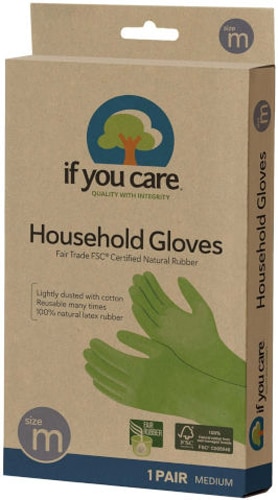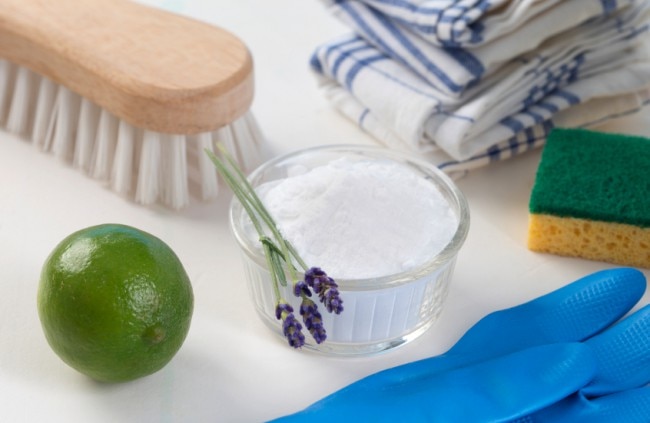Each year, millions of us shake off our winter doldrums and tackle spring-cleaning projects. But many of us also worry about the danger of being exposed to harmful substances as we tidy our homes.
Such concerns are well-founded, says Alexandra Gorman Scranton, director of science and research at Women's Voices for the Earth, an environmental and advocacy organization working to eliminate toxic chemicals in products.
"Traditional cleaning products can contain harsh chemicals," she says.
Health conditions linked to exposure to these chemicals include:
- Asthma
- Chronic dermatitis
- Poisoning
- Reproductive problems
- Severe eye injury
"Many cleaning product ingredients are volatile, meaning they gas off into the air where they can be inhaled into our bodies," Scranton says. "Using cleaning products often leads to absorption of cleaning product chemicals through our skin, particularly your hands."
In addition to presenting health risks, these products often are bad for the environment.
Keeping your cleaning products 'green'
Fortunately, you can get things spic-and-span without harming your family or the planet. You just need to add a little "green" to your spring clean.
For starters, Scranton says you should not overlook the most eco-friendly cleaning solution of them all.
"Don't underestimate the cleaning power of water," she says. "It is an excellent solvent, and does an excellent job of removing dirt without leaving chemical residue behind."
Water alone is great at removing light dust and soils from hard floor surfaces, according to CleanLink, a website aimed at the professional cleaning industry.
Other substitutes for harsh cleaning solvents include using distilled white vinegar to wash windows and sanitize counters, and baking soda and a little soap to scour bathtubs.
Some projects may require stronger cleaners. Many health experts and environmentalists suggest avoiding any cleaners that contain chlorine bleach. In addition to being tough on the environment, chlorine bleach is extremely dangerous if accidentally swallowed by children.
To keep thing "green," the Environmental Protection Agency recommends you look for cleaning products labeled as any of the following:
- Biodegradable
- Eco-friendly
- Nontoxic
By contrast, you should avoid products that have labels that read:
- Toxic
- Corrosive
- Irritant
- Flammable
- Combustible
Need more help identifying eco-friendly cleaners? The nonprofit Environmental Working Group has an online cleaning guide that can help you zero in on the best products.
Staying safe while cleaning
No matter what type of cleaning product you use, take steps to ensure your family's safety.
Before cleaning, read the label on any cleaning product you plan to use. Take heed of any warning or safety language on the cleaner.
"Spring cleaning may be more intense and longer in duration than your average cleaning jobs during the week," Scranton says. That fact means you may be exposed to greater amounts of chemicals for a longer period of time.
Wear gloves to prevent exposure to cleaning product ingredients that can cause skin irritation and rashes.
If you use stronger cleaning products – such as disinfectants – for an annual deeper cleaning, do so in a well-ventilated room to avoid a buildup of chemicals in the air, Scranton says.
"Products containing disinfectants should be used sparingly – in high-traffic locations, or in specific situations when health concerns are present," she says.
Do not combine cleaning ingredients that are incompatible. For example, mixing chlorine bleach and ammonia can create a poisonous gas.
Finally, if you have children, use only eco-friendly cleaners around them. Poison control centers receive thousands of reports every year of unintentional poisonings of children and other types of exposures associated with cleaning products, Scranton says.
"Eco-friendly products are often made of ingredients much less likely to lead to poisoning if children are inadvertently exposed," she says.




